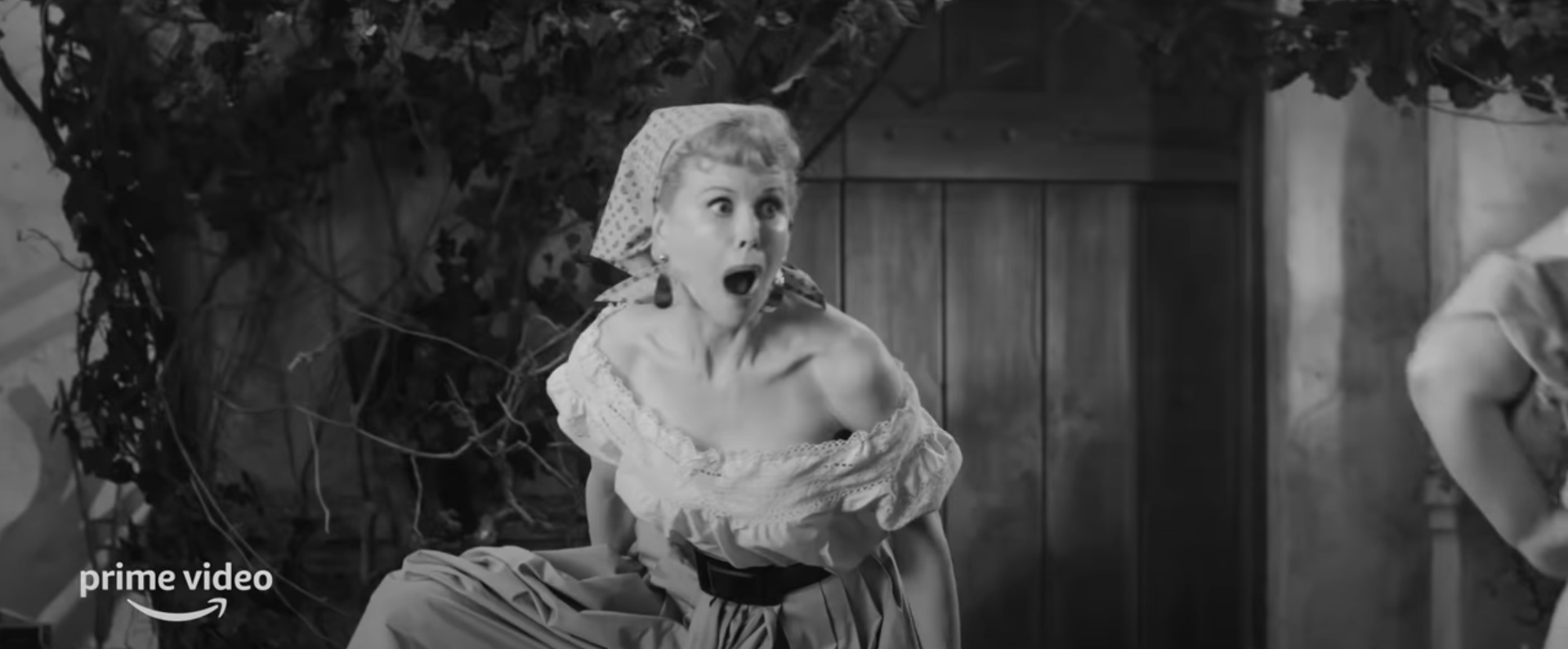Being the Ricardos
by Hope Madden
Nicole Kidman does not look like Lucille Ball. Javier Bardem does not look like Desi Arnaz. You’ll forget that not long into Being the Ricardos, a change of pace for writer/director Aaron Sorkin.
Sorkin’s biopic shadows the couple through one particularly tumultuous week in their lives as a married couple as well as TV superstars.
Kidman has the voice, the attitude, and the wearied wit to bring Lucille Ball to life. Her brittle, believable turn grapples with the pressures of being Hollywood’s most bankable comic genius. Lucille Ball was the biggest TV star on earth, a massive moneymaking machine whose eye for physical comedy and ear for lazy comic riffs elevated content and deflated co-stars and co-workers. Kidman plays a boss pretending not to be the boss and bristling at the compromise.
Those populating the soundstage and writers room around her — Nina Arianda, Tony Hale, Alia Shawkat and a bland Jake Lacy — create a fractured work dynamic looking to collapse under this particular week’s unprecedented pressure due to a leaked news story about Lucy.
Besides Kidman, the two big standouts are not surprising. JK Simmons, who’s never turned in an unremarkable performance in his life, wrestles with a character who would be easy to dismiss or despise. In the veteran’s hands, though, William Frawley (I Love Lucy’s Fred Mertz) is the tender, well-meaning if wrong-headed voice of the times.
Bardem oozes charm, charisma and aptitude as Ball’s under-regarded husband. Vanity and vulnerability roil quietly, almost out of sight, and Bardem’s chemistry with Kidman sparkles.
Being the Ricardos is not funny, and it’s hard to fathom a film about Ball that isn’t at least incidentally funny. But let’s be honest, comedy is not really Sorkin’s bag. The way he looks at success, particularly for a woman at this time period, is as smart as anything he’s done.
Sorkin reins in his characteristic rat-a-tat-tat hyper-intellectual dialog just enough to let characters be human. Their on-screen personas meet their off-screen realities in a way that allows a firmly remarkable cast to deliver twice the goods.


